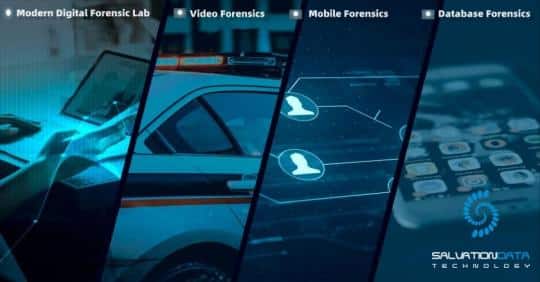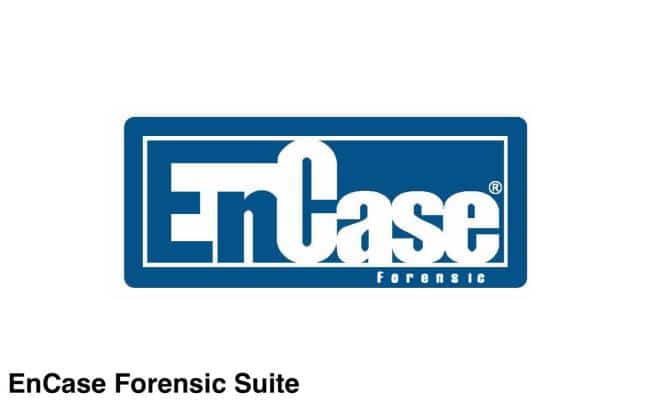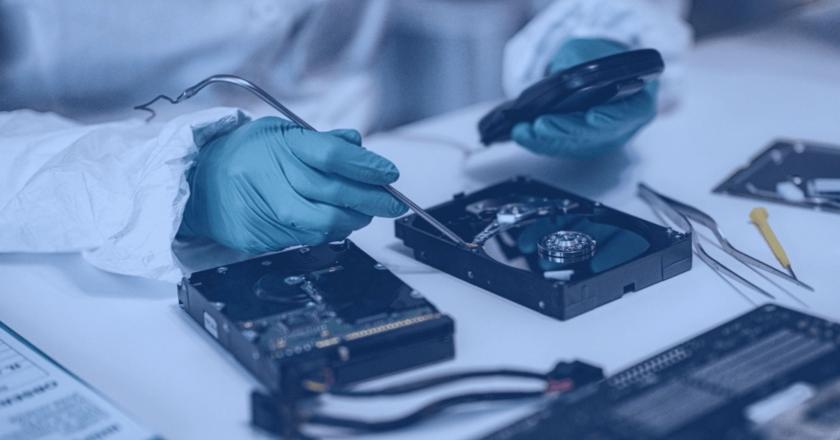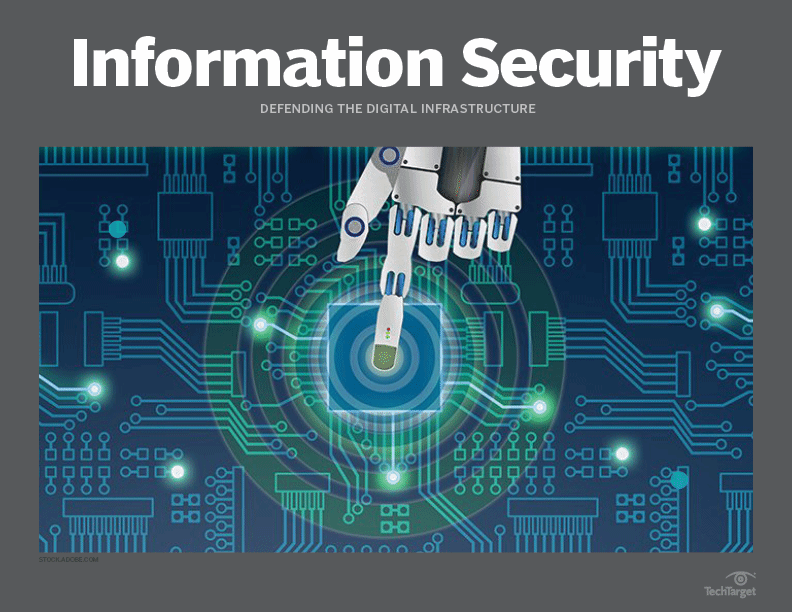Computer forensics is a job that is more important than ever beca use digital data is in every part of our lives. As cyber risks get smarter, there is a greater need for skilled forensic detectives who can figure out complicated digital puzzles. This article explores the six essential competencies that serve as the foundation for successful digital investigations. Whether you’re just getting started or want to hone your talents, these abilities will help you fulfill the strict legal and ethical requirements of digital forensics while also improving your analytical capabilities. Arm yourself with the information necessary to remain ahead of the curve in the digital world.
6 Computer Forensics Skills Every Investigator should know
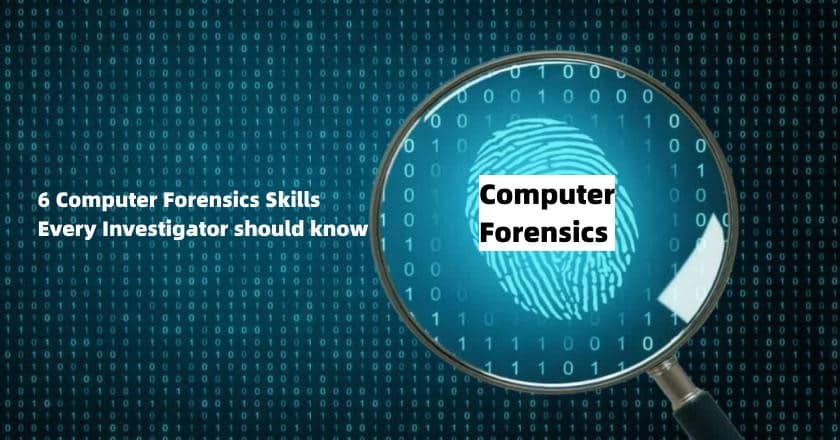
-
Content
- Evidence Collection and Preservation
- Data Recovery Skills
- Forensic Analysis Tools Proficiency
- Legal and Ethical Knowledge
- Communication and Reporting Skills
- Critical Thinking and Problem-Solving
- Conclusion
-
Content
- Evidence Collection and Preservation
- Data Recovery Skills
- Forensic Analysis Tools Proficiency
- Legal and Ethical Knowledge
- Communication and Reporting Skills
- Critical Thinking and Problem-Solving
- Conclusion
Evidence Collection and Preservation
The most important part of computer forensics is collecting and preserving data well. It is very important to be very careful when handling digital evidence to keep it from getting tainted, which could ruin the whole probe. Forensic experts have to follow strict rules to keep data safe from people who shouldn’t be able to change it. This makes sure that the data will hold up in court.
1. Securing and Preserving Data
Some ways to protect digital evidence are to use write blocks to stop data from being changed while it is being collected and to keep a written chain of custody. To keep people from accessing or changing the proof, it is important to have both real and digital security steps in place.
2. Essential Tools for Forensic Image Acquisition
- EnCase– A widely respected tool that offers powerful options for imaging and examining data from various types of digital media.
- FTK Imager– Known for its ability to create exact, forensic-grade copies of data without altering original evidence.
- SalvationDATA– Offers specialized hardware and software solutions that support a range of forensic needs, including secure data extraction and preservation.
Each tool is designed to meet the high standards of computer forensics investigations, providing investigators with reliable means to capture and preserve digital evidence crucial for successful outcomes.
Data Recovery Skills
In computer forensics, data recovery is a vital ability that is necessary to recover lost, corrupted, or destroyed material that may be crucial to an investigation. Effective data recovery frequently makes the difference between a case being solved and coming to a standstill.
1. Effective Recovery Methods
Forensic investigators utilize sophisticated algorithms that can probe deep into the storage medium to retrieve information that may first seem to be gone. Slack space analysis, which searches for file remains in the drive’s unallocated space, and carving for files based on recognized signatures are two methods.
2. Popular Software Tools for Data Recovery
- Recuva– Offers robust recovery capabilities across a variety of file types and storage devices, including hard drives and external storage units.
- Disk Drill– Known for its intuitive interface and powerful scanning technology that can recover data from nearly any type of disk-based storage.
- Stellar Data Recovery– Praised for its ability to handle complex data recovery situations, including recovering data from severely damaged or encrypted drives.
3. Navigating Recovery Challenges
The road to successful data recovery in computer forensics is fraught with challenges. Encrypted files pose a significant hurdle, requiring decryption before any data can be recovered a process that can be both time-consuming and technically demanding.
Furthermore, the fragmented structure of contemporary storage systems might exacerbate the recovery process as data may be dispersed across the disk, making it more challenging to reconstruct them entirely.
Forensic investigators must comprehend and get above these challenges. It is vital for investigators to possess expertise in both theoretical and practical components of data recovery to guarantee the retrieval of crucial information, regardless of its obscurity or destruction.
Forensic Analysis Tools Proficiency
In the field of computer forensics, where the accuracy and scope of digital investigations may impact the result of judicial procedures, proficiency with forensic analysis tools is essential. By becoming proficient with these technologies, investigators may find buried information, decipher complex file systems, and provide convincing evidence that complies with court requirements.
1. Leading Tools in Forensic Analysis
- EnCase– Offers comprehensive functionality for acquiring and analyzing data from a wide range of digital devices. Known for its thorough searching capabilities, EnCase helps forensic experts to efficiently identify critical evidence.
- FTK (Forensic Toolkit)– Renowned for its powerful processing and indexing features, FTK allows for faster data analysis and can handle large volumes of data without compromising system performance.
- SalvationDATA Forensic DRS– This advanced tool specializes in recovering deleted or damaged partitions and retrieving encrypted data, making it a valuable asset in complex forensic investigations.
2. Effective Navigation and Use
It takes a thorough grasp of the program as well as the fundamentals of digital forensics to use these tools efficiently. Experts in setting up settings to suit the particulars of each case, forensic investigators must be able to use filters and keywords to distill large databases down to pertinent facts. As digital environments change quickly and new data formats and storage options are introduced, regular upgrades and training are essential.
3. Real-Life Applications
- Criminal Investigations: Evidence is often found using forensic tools like FTK and EnCase in cybercrime cases including fraud, identity theft, and illegal system access. These technologies examine the digital traces left by criminals, giving law enforcement the proof they need to bring charges against them.
- Corporate Audits: Forensic tools are used by corporations to carry out internal audits and guarantee adherence to data protection laws. Sensitive data, including trade secrets and customer information, is safeguarded against both internal and external threats with the use of these technologies, which assist in identifying unlawful data access or breaches.
To put it simply, mastery of these forensic instruments raises the technical competency of the investigators while also greatly increasing the acceptance and credibility of the results in legal settings. Through the use of these technologies, forensic experts may guarantee that digital evidence is carefully examined, maintaining the integrity of their investigation procedures.
Legal and Ethical Knowledge
In computer forensics, knowing your way around the ethical and legal ramifications is just as important as mastering the technicalities of data recovery and analysis. Adequate comprehension of the legal structure guarantees that digital evidence obtained is both convincing and acceptable for use in court. This information maintains justice and protects the integrity of the investigation process.
1. Compliance with Legal Frameworks
Computer forensics investigators must be intimately familiar with laws related to electronic discovery, privacy, and data protection. This includes statutes like the Electronic Communications Privacy Act (ECPA) and regulations such as GDPR for those handling data within or from Europe. Ensuring that digital evidence is collected and processed legally is vital for its admissibility in legal proceedings.
2. Court Admissibility of Digital Evidence
To ensure that digital evidence is admissible, it must be collected and preserved in a manner that prevents tampering or contamination. Using forensically sound methods and tools, such as those provided by computer forensics companies, is essential. Documentation of the chain of custody and maintaining a clear audit trail are also critical to satisfy court requirements.
3. Ethical Handling of Sensitive Data
When handling private or sensitive information, ethical issues must always come first. In order to protect privacy and prevent data exploitation, investigators must do their business with the utmost honesty. A framework for handling any conflicts of interest and preventing the misuse of private information is provided by ethical standards and corporate policies.
By integrating these moral and legal guidelines into routine forensic procedures, the essential values of justice and equity in the digital age are upheld, and the evidence’s credibility is increased while the rights of those participating in the inquiry are safeguarded.
Communication and Reporting Skills
In computer forensics, clear and accurate reports can have a big effect on how well they are accepted in court. This means that communication is very important. For non-technical people, like juries and judges, to understand technical proof, computer forensics expert witnesses need to be able to explain their results in detail.
1. Crafting Court-Admissible Reports
Reports have to be produced carefully, outlining every phase of the investigation in clear and concise language. Because of their clarity, the reports are certain to stand up in court and to be examined closely by legal professionals. Presenting the facts in a logical order and backed up by the evidence is essential for building authority and confidence in the courtroom.
2. Presenting Findings Effectively:
It’s critical to transform sophisticated digital data into easily understood language when presenting conclusions. Charts and diagrams are examples of visual aids that may be used to demonstrate the digital trail and provide a strong argument. In order to support the validity of the results and facilitate decision-making, practice, preparation, and the capacity to respond succinctly and clearly to questions are essential.
Critical Thinking and Problem-Solving
Critical thinking and problem-solving are the bedrocks of computer forensics. These skills enable investigators to navigate through complex challenges and uncover crucial evidence that might not be immediately apparent.
1. Approaching Complex Forensic Challenges
It takes critical thinking on the part of forensic analysts to develop theories based on digital artifacts and validate them against the available data. This entails breaking down data in a methodical manner, looking for abnormalities, and comprehending the wider ramifications of the digital evidence.
2. Examples of Complex Problem Solving:
- Encrypted Data Recovery: In a case involving corporate espionage, forensic experts used advanced decryption techniques to access encrypted emails that were crucial to the investigation. This not only solved the case but also helped the company strengthen its encryption policies.
- Reconstruction of Deleted Files: In a legal dispute over intellectual property theft, analysts were able to reconstruct fragmented files that had been deliberately deleted. Through rigorous analysis using information security protocols and digital forensics tools, they provided undeniable proof of data theft, leading to a favorable court decision for the plaintiff.
These examples underscore the importance of combining technical prowess with logical reasoning to solve intricate cases in computer forensics.
Conclusion
Because computer forensics is a dynamic and ever-evolving profession, practitioners must remain alert and dedicated to lifelong learning. As technology advances and cyber threats become more sophisticated, an understanding of what is computer forensics and the ability to utilize computer forensics software effectively will only increase in importance.
1.Embrace Continuous Learning
A forensic investigator’s journey never ends. Both the environment for digital data and the methods needed to interpret it will keep changing. Professionals in the area must continue their education and training to remain ahead of the curve. Participating in workshops, earning certifications in the latest computer forensics software, and staying updated with new regulations will ensure that your skills remain sharp and relevant.
2. Call to Action
Strive to go beyond the limits of your present abilities and knowledge. Participate in the forensic community, exchange information, and get insight from actual cases. To preserve the integrity and progress the profession of computer forensics, you may cultivate a culture of ethical practice and ongoing growth.
In order to tackle the next difficulties in computer forensics, practitioners are encouraged to continuously increase their competencies, since this conclusion emphasizes the need for continued professional development.
